Search
Did you mean: Amos?
Remove Ads
Advertisement
Summary 
Loading AI-generated summary based on World History Encyclopedia articles ...
Search Results
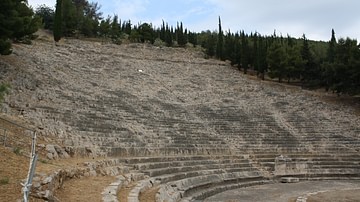
Definition
Ancient Argos
Ancient Argos, located in the Peloponnese in Greece, was a major Mycenaean settlement in the Late Bronze Age (1700-1100 BCE) and remained important throughout the Greek, Hellenistic, and Roman periods until its destruction by the Visigoths...

Definition
Telesilla of Argos
Telesilla of Argos was a lyric poet of the 5th century BCE, listed by Antipater of Thesalonike (c. 15 BCE) as one of the great Nine Female Lyric Poets of Greece (along with Praxilla, Moiro, Anyte, Sappho, Erinna, Corinna, Nossis, and Myrtis...

Video
Telesilla of Argos, the Greek Lyric Poet who Defended Argos
Telesilla was a Greek lyric poet who lived in Argos in the fifth century BCE. Along with the famous poet Sappho, Telesilla was named as one of the Nine Female Lyric Poets of Greece, and is known for both her lyric poetry (even though only...

Image
Heraion of Argos, Greece
The Heraion of Argos is an ancient temple in Argos, Greece. It was part of the greatest sanctuary in the Argolid, dedicated to the goddess Hera. The sanctuary grew and expended during the Archaic and Classical period and most of the remains...

Image
Theatre of Argos
Built from the 4th to 3rd century BCE. Originally there were 81 rows of seats giving a total capacity of 20,000 spectators, making it the largest Greek theatre.
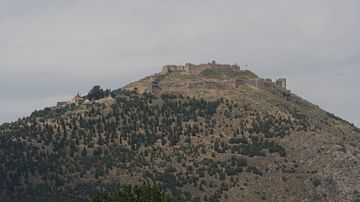
Image
Acropolis of Argos
The Hill of Larissa, site of the ancient acropolis of Argos (6th to 5th century BCE). Visible today are the fortifications of the 10th century CE which incorporated some of the ancient polygonal walls, particularly on the north side.
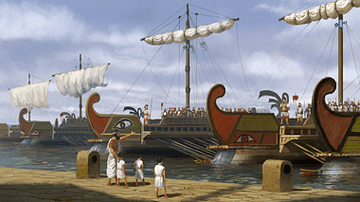
Article
The Delian League, Part 5: The Peace of Nicias, Quadruple Alliance, and Sicilian Expedition (421/0-413/2 BCE)
This text is part of an article series on the Delian League. The fifth phase of the Delian League begins with the Peace of Nicias – a settlement that settled nothing – and ends with the start of the Decelean War (also referred to as the...

Definition
Libation Bearers
The play Libation Bearers was written by one of the greatest of all Greek tragedians Aeschylus (c. 525-455 BCE). Winning first prize at the Dionysia competition in 458 BCE, Libation Bearers was the second play in the trilogy The Oresteia...
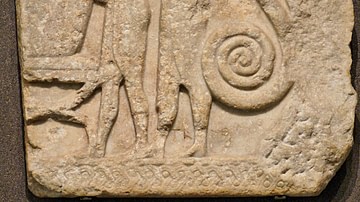
Definition
Agamemnon (Play)
The play Agamemnon was written by one of the greatest Greek tragedians Aeschylus (c. 525 – 455 BCE), “Father of Greek Tragedy.” Older than both Sophocles and Euripides, he was the most popular and influential of all tragedians of his era...
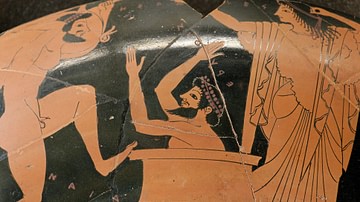
Definition
The Children of Heracles
The Children of Heracles (Heraclidae) is one of Euripides' lesser known and least popular works, as is the myth surrounding the tragedy play. Its date is also uncertain, possibly written in the late 430s or early 420s BCE. The play revolves...